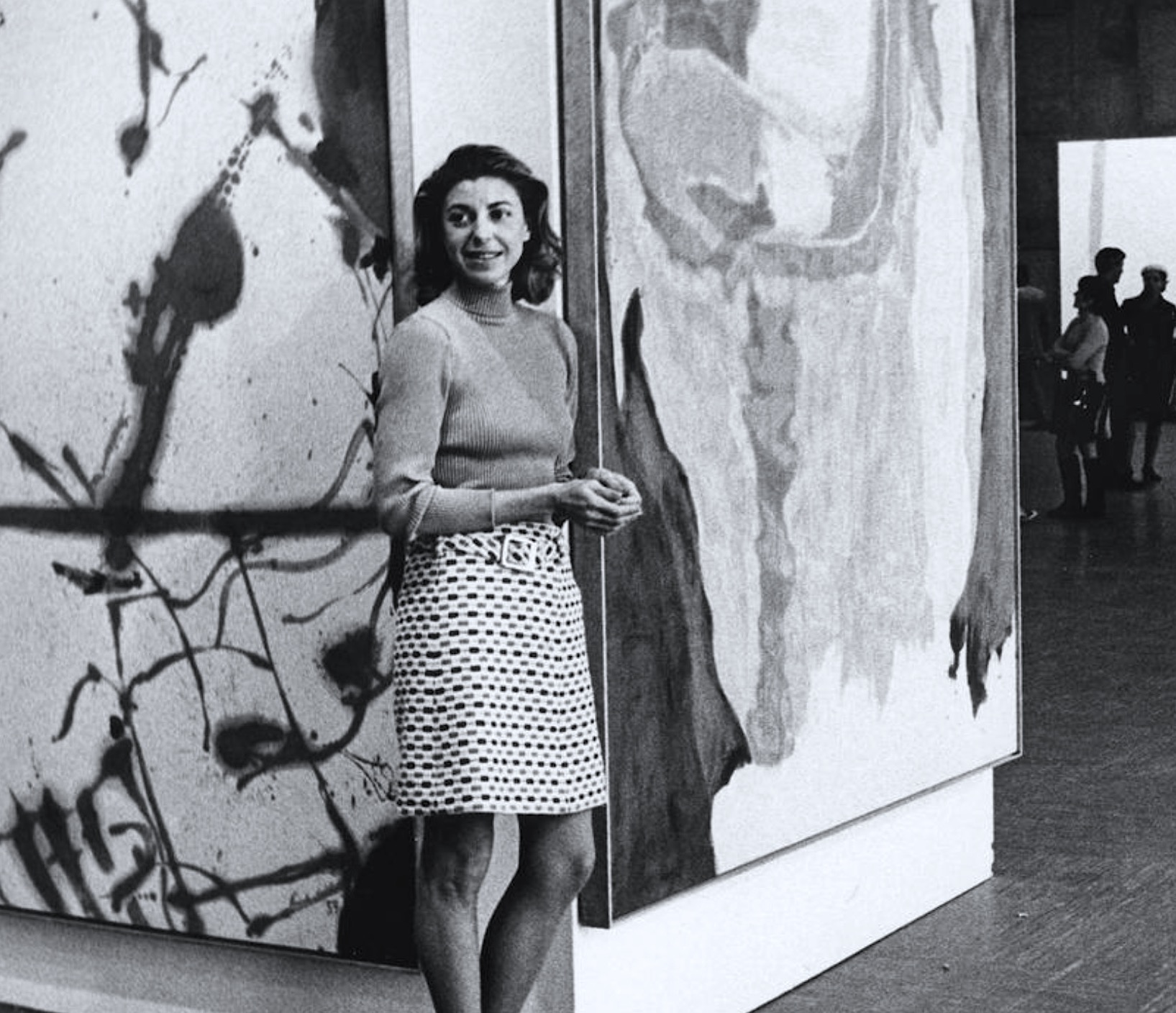Frederick Iseman, nephew of the renowned Abstract Expressionist painter Helen Frankenthaler, has initiated legal action against the Helen Frankenthaler Foundation, accusing it of compromising the artist’s legacy. Iseman, a former board member for two decades until his removal earlier this year, is suing three current directors: Clifford Ross, the foundation president and also a nephew of the artist; Lise Motherwell, Frankenthaler’s stepdaughter; and Michael Hecht.
Iseman, who served as the board president until May 2021, alleges that he was ousted for resisting what he claims were self-serving actions by the other directors. He asserts that the trio breached their fiduciary duty by using the foundation for personal gain and preventing the board from expanding to conceal their actions.
The lawsuit implicates Ross in “pay-to-play” dealings, alleging that he engaged in transactions where foundation grants were distributed to entities in exchange for coverage or exhibition opportunities for his work. Despite lacking curatorial experience, Motherwell is accused of leveraging her position on the foundation board to curate a Frankenthaler exhibition at a regional museum where she serves as president and donated Frankenthaler artworks valued at $1.4 million. Hecht is criticized for hiring his accounting firms for foundation work, creating an apparent conflict of interest.
Central to Iseman’s claims is the foundation’s alleged failure to adequately promote Helen Frankenthaler’s work to significant art institutions. He further contends that Ross, Motherwell, and Hecht conspired to “cash out” the foundation’s assets, aiming to donate or sell key artworks by 2030 and fully liquidate the foundation by 2034.
Iseman seeks the removal of the three directors and restoration to the board, pointing to what he perceives as a systematic dismantling of Helen Frankenthaler’s artistic legacy.
Helen Frankenthaler, born on December 12, 1928, emerged as a pioneering force in American post-war abstract art. Raised in a culturally enriched environment, her father, Alfred Frankenthaler, a New York State Supreme Court justice, and her mother, Martha Lowenstein, fostered an early appreciation for the arts.
Frankenthaler’s artistic development took a significant turn during her education at Bennington College, where she encountered the influential art critic Clement Greenberg. Greenberg’s ideas and mentorship proved instrumental in shaping her artistic perspective. Frankenthaler graduated in 1949, stepping into the art scene during the zenith of Abstract Expressionism.
In 1952, at 23, Frankenthaler achieved a breakthrough with her seminal work, “Mountains and Sea.” This canvas, a fusion of landscape and abstraction, introduced her groundbreaking “soak-stain” technique. By pouring thinned paint onto unprimed canvas, she allowed the colours to permeate and become part of the fabric, creating a sense of fluidity and spontaneity.
Helen Frankenthaler’s work became associated with Abstract Expressionism and, later, Color Field Painting. Her innovative approach marked a departure from the gestural intensity of her contemporaries, introducing a lyrical and atmospheric quality to her compositions. Influenced by Jackson Pollock’s drip technique, Frankenthaler’s soak-stain method retained a unique, softer aesthetic.
Frankenthaler received widespread acclaim for her contributions to the art world as her career progressed. Major retrospectives at esteemed institutions like the Whitney Museum of American Art and the Museum of Modern Art solidified her position as a leading figure in American art.
Frankenthaler continued to evolve her style over the years, experimenting with various media and techniques. Her work transcended the boundaries of traditional painting, venturing into printmaking and sculpture. Beyond her artistic contributions, Frankenthaler’s impact extended to her role as a mentor and advocate for the arts.
In 1958, Frankenthaler married fellow artist Robert Motherwell, and their union, though ending in divorce in 1971, marked a significant period of mutual artistic influence. Frankenthaler navigated the challenges of being a woman in the male-dominated art world, earning respect for her creative vision and resilience.
Frankenthaler passed away on December 27, 2011, leaving a lasting legacy. Her work continues to inspire generations of artists, and her innovative techniques remain a testament to the transformative power of art.
Top Photo: Courtesy Helen Frankenthaler Foundation

